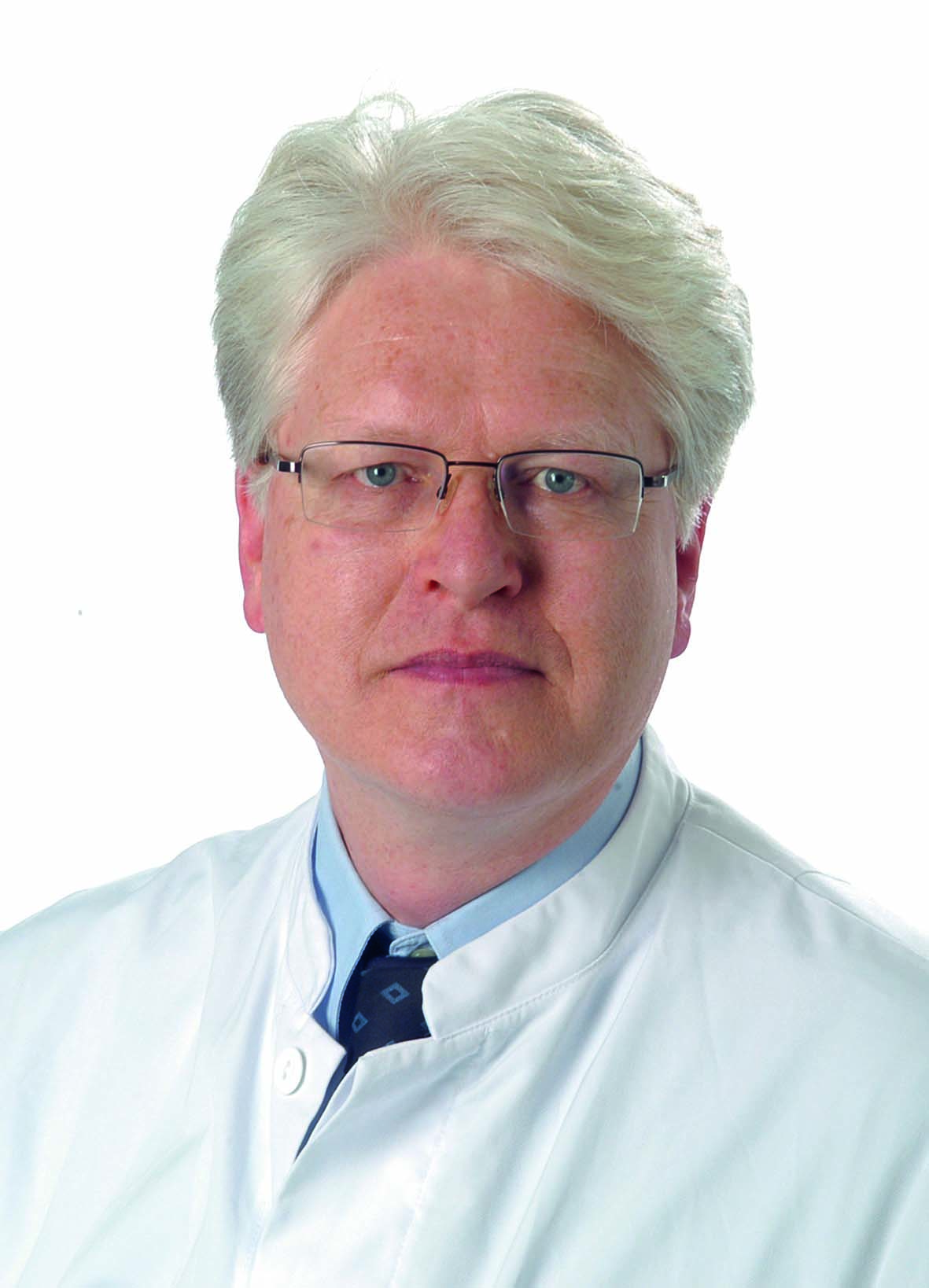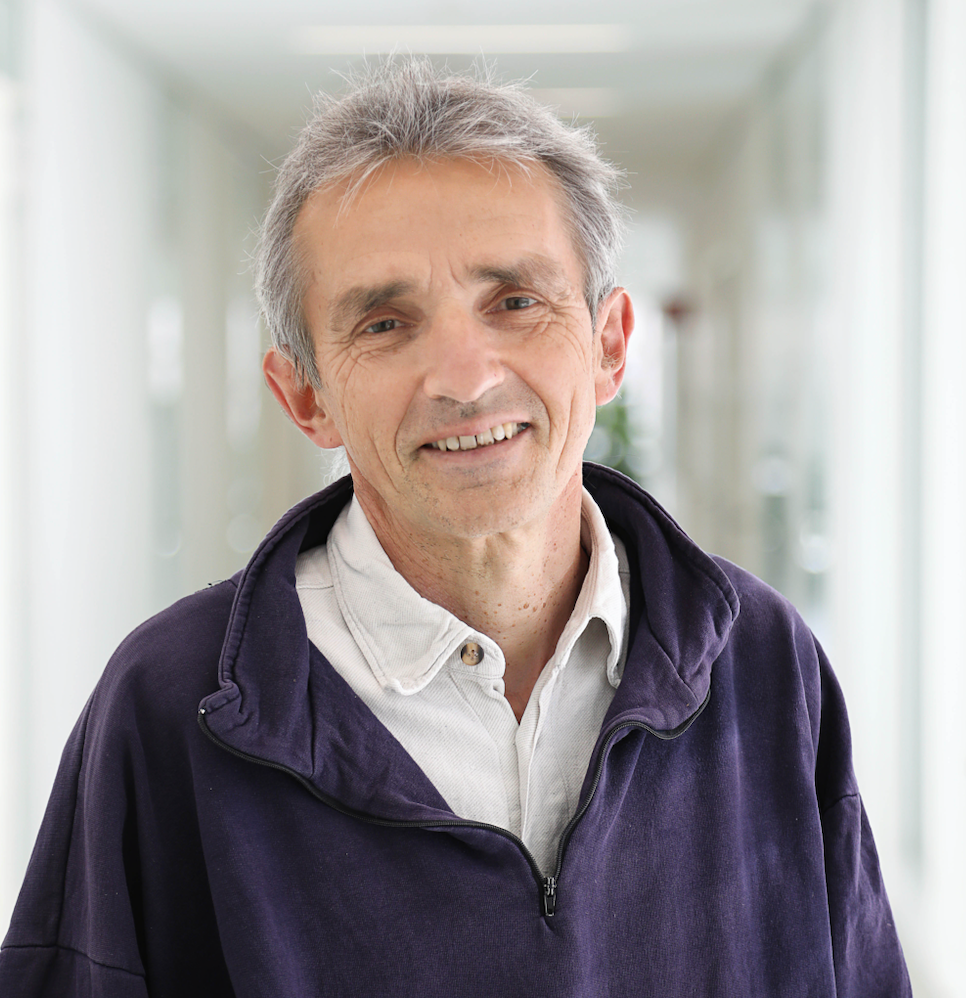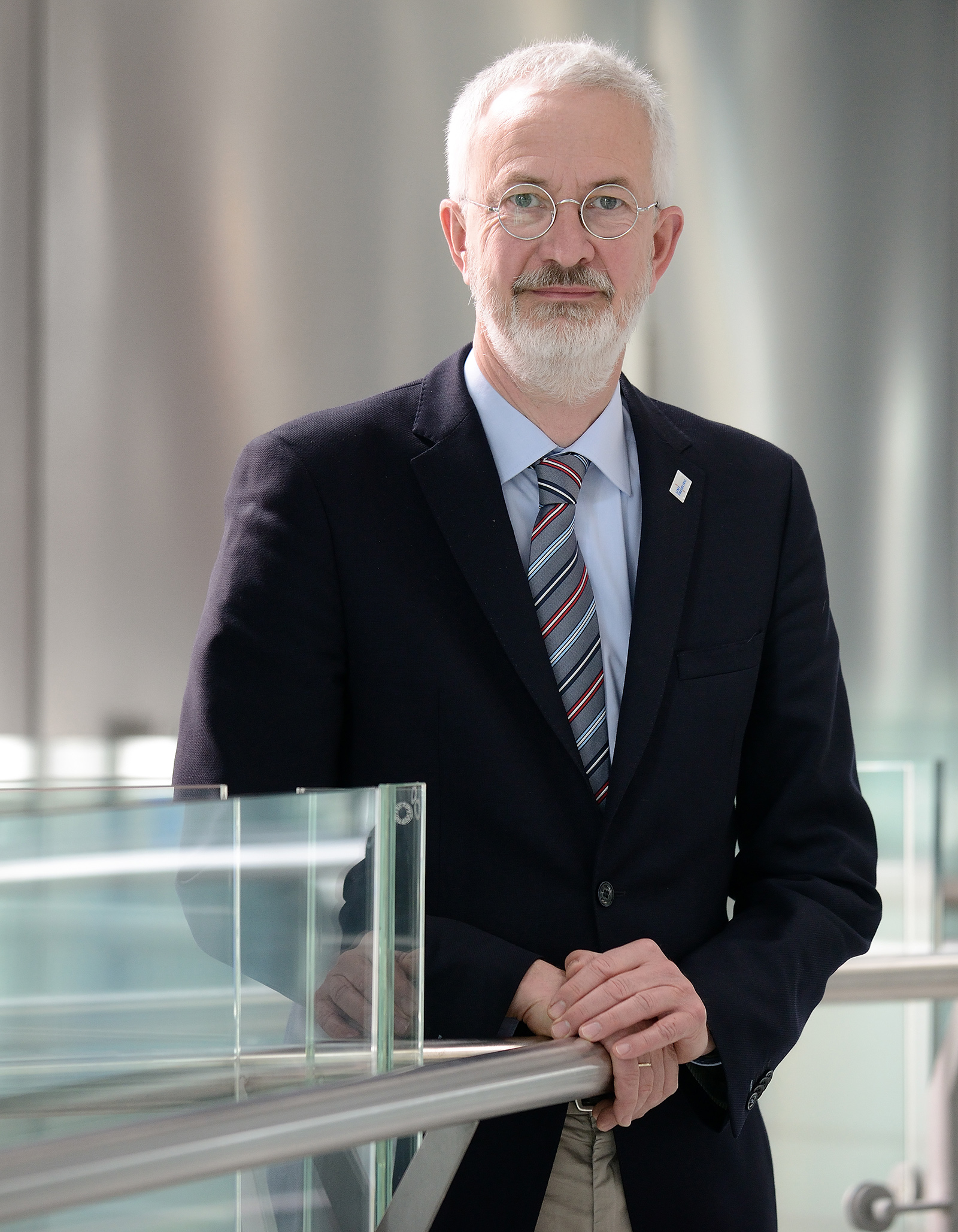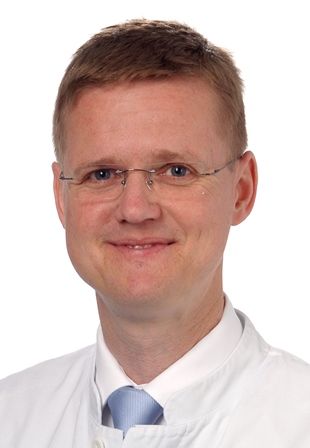Call 2012
Next generation molecular diagnostics of malignant gliomas (completed)
Malignant gliomas are the most common tumors in the brain and are extremely difficult to treat. New research has found evidence of numerous genetic changes in glioma cells. A thorough analysis of these complex changes has enabled scientists to identify tumor subtypes that share the same molecular characteristics. These molecular characteristics can in turn be used to improve diagnosis and the prognosis accuracy and help predict the individual patient’s response to particular types of treatment.
In this collaborative project, the DKTK scientists are establishing new diagnostic methods for malignant gliomas based on molecular markers. These methods are intended to help offer patients personalized treatment plans that present the best chances of success for their molecular tumor subtype. To start with, the scientists are investigating how molecular changes and the associated tumor subtypes have influenced treatment outcomes for glioma patients in the past. For this study they have access to well-documented courses of treatment and tumor samples from large numbers of patients who have previously been treated at the participating university hospitals with the currently available forms of treatment: surgery, radiotherapy and chemotherapy. The patients had given their consent for data relating to the outcome of their treatment and biopsy samples from their tumors to be used for research – for the benefit of future cancer patients. The tumor biopsies are analyzed using a range of high-throughput methods (e.g. genome and transcriptome sequencing, and candidate gene analysis) to identify genetic and epigenetic changes in the tumor cells, i.e. in the cancer genome, and deviations in protein composition in the cancer cells. In addition, the experts analyze epigenetic changes that determine how strongly a gene is expressed. They then correlate the new or known molecular changes they have identified with the course of the disease and with the treatment outcome. In the future, oncologists will be able to use these findings to offer their glioma patients the best treatment for their molecular subtype. The plan is for the DKTK physicians and scientists to offer these new diagnostic methods and associated treatments in controlled clinical trials to start with, to validate their findings. For this purpose, they are already developing and installing new infrastructure and the DKTK-wide standardized processes necessary for taking tissue samples, carrying out routine sequencing and diagnosis and making treatment decisions in clinical practice.
Coordinators

Prof. Dr. Gudio Reifenberger
REVEAL
Antibodies are increasingly being used as targeted therapies for treating cancer patients. They can recognize specific molecules on the surface of cancer cells and block their function specifically, or activate the patient’s immune system to attack the tumor. Antibodies are also administered in combination with chemotherapy, for instance in cases of advanced colon cancer. Even with this combination treatment, however, physicians are seeing primary and secondary therapy resistance: some patients do not respond to the treatment and in some patients success is only temporary. The sequencing of tumor samples is increasingly helping scientists identify genetic modifications in cancer cells. However, it is not yet known which of these changes are responsible for therapy resistance in colon cancer patients.
This multicenter project aims to uncover the molecular causes of primary and secondary therapy resistance in colon cancer. When planning treatment, oncologists would then be able to take into account which cancer drugs a patient is resistant to or is highly likely to develop resistance to. The scientists are pursuing two approaches: in order to understand primary tumor resistance, they are analyzing tumor samples from patients who have already been treated with a combination of antibody therapy and chemotherapy and for whom the outcome is known. They are isolating DNA from the samples and sequencing around 500 genes associated with colon cancer to identify genetic changes. At the same time, they are establishing whether cells from the immune system have migrated to the tumor, since DKTK scientists have observed indications that this kind of immune cell infiltration correlates with a better treatment outcome. The researchers are concentrating primarily on changes that are significantly different between patients who responded particularly well or particularly poorly to treatment. In the subsequent, second approach, the scientists at the two participating sites will take tumor biopsies from 60 patients before treatment and in the event of a recurrence. These samples will be analyzed for molecular changes, as in the first approach. The results will enable the researchers to verify their conclusions from the first approach and, for the first time, to investigate the causes of secondary therapy resistance (by comparing the biopsies taken before and after treatment from patients who suffer a relapse). In future, genetic and immune analyses will be used as a routine diagnostic method so that every colon cancer patient can be offered the best treatment option for them.
Coordinators

Prof. Dr. Reinhold Schäfer

Prof. Dr. Volker Heinemann
RaPS
People between the ages of 40 and 60 have a two to four times higher risk of developing colon cancer if they have first-degree relatives affected by the disease. Experts recommend that people in this risk group take part in early colon cancer screening programs. In Germany, however, colonoscopies for colon cancer prevention are only offered as standard from the age of 55 onwards.
The aim of the joint project is firstly to establish how frequently people aged 40–55 who have family members with the condition present signs of colon cancer or its precursor stages that can be identified via a colonoscopy and removed. For this part of the project, the participating physicians are offering colonoscopies to 1200 test subjects between the ages of 40 and 54 who have close relatives affected by colon cancer. The data can then be used to develop improved preventative measures for this risk group. In addition, the scientists hope to establish new, less invasive detection methods for early cancer diagnosis. They are examining blood and stool samples for molecular risk factors and biomarkers that would be suitable for early cancer diagnosis.
The aim is for this study to produce new findings that can improve colon cancer prevention in the risk group of people with family members already affected by the disease. This could enable a considerable proportion of the 15,000 or so cases of colon cancer that occur each year in Germany among people below the age of 65 to be prevented or identified early and treated effectively.
Coordinators

Prof. Dr. Hermann Brenner
Novel Tools for Functional Analysis of Oncogenic Pathways (completed)
Scientists need novel technologies to discover and test oncogenic pathways for different types of cancer. Thanks to high throughput technologies such as “Deep Sequencing” more and more signaling proteins of these pathways can be identified. A crucial limiting factor for understanding the biology of cancers and for developing targeted cancer drugs, however, is the limited knowledge what function the identified signaling proteins have. Quicker and more efficient tools to validate the respective cancer genes on the organismal level are therefore needed.
In this joint funding project is a collaboration of scientists from the DKTK research program “Oncogenic Pathways” and the DKTK research platform “Preclinical Models” located at all partner sites. They aim to establish methods that effectively and reliably inactivate signaling proteins by using high throughput technologies. For that to happen, certain genes are being silenced through molecular-genetic processes such as RNA-interference or CRISPR nucleases. With high throughput technologies hundreds of genes of a certain signaling pathway can be blocked – one gene per petri-dish. If the tumor cells in one petri-dish lose their tumor characteristics, the researchers know that they need to follow up on the relationship between this knocked-out gene or signaling protein and its function. The technology is utilized for different key themes in the research program (cell growth and cell differentiation, tumor microenvironment, apoptosis and epigenetics) as well as various tumor entities. Different two and three dimensional cell cultures as well as mouse tumor models are being used.
As part of the Joint Funding Project, scientists under guidance of Clemens Schmitt, Berlin, will build up a small RNA-interference library to analyze the regulation of tumor suppressors in lymphomas. Specific signaling proteins shall be identified which could be clinically relevant as pharmacological target structures. Additionally, scientists of the Joint Funding Project guided by Roland Rad and Roland Schmid, both Munich, will develop so-called genome editing technologies. These technologies can specifically turn off the genes belonging to identified signaling proteins in animal models or edit in certain variations. The observed impact on cancer development and metastasizing provide important information on the activity of individual signaling proteins and their suitability in diagnostics and therapy. Scientists headed by Cornelius Miething, Freiburg, will implement an RNA-interference library for key enzymes in cellular signal processing, the so-called kinases (>800 genes), phosphatases (>200 genes), peptidases (>400 genes) as well as peptidase inhibitors (>180 genes). To establish relevant animal models, the project closely collaborates with the Helmholtz-Alliance “Preclinical Comprehensive Cancer Center (PCCC)” which is headed by the Heidelberg DKTK scientist Hellmut Augustin.
Coordinators

Prof. Dr. Christoph Peters

Dr. Cornelius Miething

Prof. Dr. Roland Schmid
Evaluation of New Therapeutic Concepts in Relapsed AML (completed)
Many cancers respond well to the first therapy but weeks, months or even years later the tumor comes back and, in many cases, the patients die of it. These so-called relapses are caused by tumor cells that were resistant to the initial treatment.
The focus of this research project lies on a clinical study, the so-called RELAZA 2 study (headed by U. Platzbecker, partner site Dresden) focused on the treatment of one type of blood cancer, the acute myeloid leukemia (AML). As part of the study, physicians of the DKTK sites and their colleagues at collaborating hospitals treat patients who have been diagnosed with an early stage relapse with a novel chemotherapy. They hope to slow down the relapsed disease or even stop or prevent it with the new therapy. The study is accompanied by intense research through DKTK scientists to improve the early and precise detection and treatment of relapses in AML patients.
The working group headed by Christian Thiede and Karsten Spiekermann from Dresden and Munich sequences the patients’ cancer genomes. The technology can detect cancer genes that might be used for early diagnosis or for a prognosis if a patient will profit from a certain therapy or not. At the same time, Christian Brandts and his colleagues in Frankfurt analyze the proteins of these cancer cells to test if changes in the abundance or structure of individual or several proteins allow for an accurate and early diagnosis or prognosis. Under certain circumstances the identified proteins might also be used as target structures for novel therapies.
In Munich, Irmela Jeremias works with the patients’ AML biopsies to simulate the patients’ disease in animal models as precisely as possible. These advanced models are particularly well suited to test new therapies. In collaboration with Simone Fulda from Frankfurt they also test substances that cause cell death.
Furthermore, Justus Duyster and Cornelius Miething in Freiburg and Magdalena Götze in Munich conduct functional studies with AML cells as well as specialized AML cell subpopulations, the cancer stem cells. They aim to gain a better understanding of the development, relapse processes and therapy resistance in AML patients. To this end, the scientists turn off single genes of these cells in cell cultures and animal models using high throughput technologies. This way they can study the role of these genes in AML.
Apart from the cancer cells themselves, cells in the surrounding of the tumor are suspected to also play a role in the development of the disease and of relapses. They can “protect” cancer cells from the chemotherapy. Therefore, Claudia Baldus’ team in Berlin investigates how these cells differ in AML patients in comparison to healthy people and how the cells interact with the cancer cells. Discoveries from this functional study with cancer cells of AML patients shall be implemented into new therapeutic strategies such as the identification of novel target structure on cancer stem cells or in the tumor microenvironment.
Coordinators

Prof. Dr. Christian Thiede
